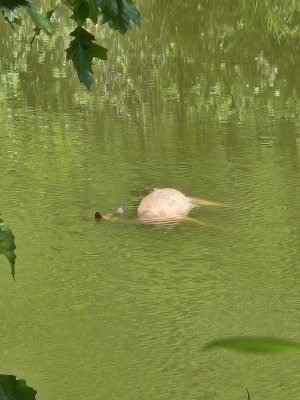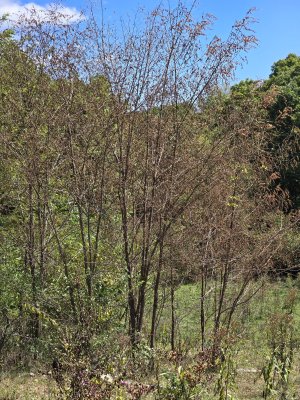blueKYstream
5 year old buck +
While out checking on a few things on the farm, I noticed something floating in the pond from the other side. At first, I thought it was one of the cows. When I got closer, I realized it was a deer. I wasn't sure what may have killed this deer. Normally, I would think EHD would be during dry spells. It's been wet here though. Not sure what else may make a deer go to water and then die.
On another note, I have a ton of black locust invading the perimeter of the pond. I've tried to kill it for several years by cutting it about 18-24" and applying triclopyr (25% with diesel at 75%) conservatively on stumps since it's not supposed to be applied near water. The only thing that's done is create a bigger mess with root sprouts. I cut some huge black locust down in my yard and applied triclopyr on the stump and I'm just now starting to see the sprouts slow down after two years of mowing them. It seems to work for just about everything else I've tried it on though. Any suggestions on herbicide and timing for black locust near a pond?

On another note, I have a ton of black locust invading the perimeter of the pond. I've tried to kill it for several years by cutting it about 18-24" and applying triclopyr (25% with diesel at 75%) conservatively on stumps since it's not supposed to be applied near water. The only thing that's done is create a bigger mess with root sprouts. I cut some huge black locust down in my yard and applied triclopyr on the stump and I'm just now starting to see the sprouts slow down after two years of mowing them. It seems to work for just about everything else I've tried it on though. Any suggestions on herbicide and timing for black locust near a pond?


